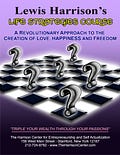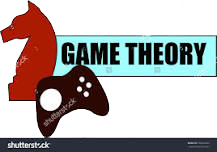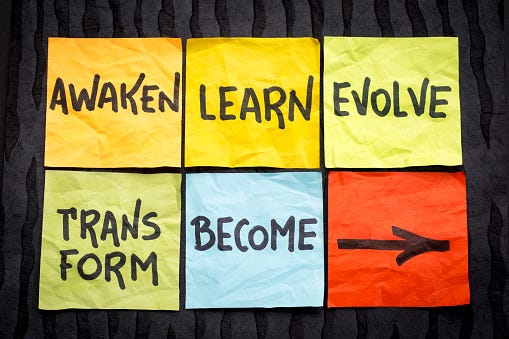“This newsletter serves a demographic of highly intelligent readers, and deep thinkers with a passion for ideas, critical thinking, strategic game theory, and a desire to understand the world around them. Readers of my posts are usually tired of being patronized elsewhere by fact-less, opinionated know-nothings, misinformation, conspiracy theories, and fake news.
“Knowledge is power, wisdom brings meaning, contentment, and happiness!”
———————————————————
———————————————————
On a personal note: Please excuse grammatical errors, typos, repetition, and any general nonsense, and such in this post. I am getting a bit older now, and I have about 20,000 pages of information that must get published before I leave the mortal coil. I simply write and publish more than my humble editors are able to correct. If you find enough errors you are welcome to contact me about being an editor of my work.
Thanks for sharing this newsletter with your friends and associates - Join us for daily tips on personal development at our free Self-Improvement for Beginners Group and Forum
Click Below or cut and paste the URL to Join
https://www.facebook.com/groups/455029215769173
———————————————————
A 2 - Minute Read
Q. Lewis, what is the connection between games, strategic thinking, and friendship?
A. One of the very first things we do in life is play games. To play is to engage in a wide range of voluntary activities for learning, as well as for recreational pleasure and enjoyment. It is inherent in our makeup. It doesn’t matter where in the world we are, what country we are from, or the culture that defines us.
The need to play is instinctual, in other words, it is something hard-wired into our brains and nervous systems. To play is so much a part of who we are, that if we don’t play, we become unhappy and even sick. As babies, we often and easily play alone. In time we may expand to playing with a toy, pet — possibly a bird, puppy, or kitten. As we become a little older, we are instinctively drawn to other people and are likely to play with other children, especially those with whom we may have a natural rapport.
As children reach the ages of 7 and 12, they naturally begin to play organized games that are a bit more complex than merely making sandcastles in a sandbox.
From a very young age, children often play traditional or folk games. These games have been passed down from child to child, from generation to generation, formally or informally, and usually by word of mouth. Here, we have learned that the rules are intuitive, without reference to written standards.
It is here that we learn about kindness, compassion, and being a good winner!
“Accomplishments don’t erase shame, hatred, cruelty, silence, ignorance, discrimination, low self-esteem, or immorality. It covers it up, with a creative version of pride and ego. Only restitution, forgiving yourself and others, compassion, repentance, and living with dignity will ever erase the past.”
― Shannon L. Alder
The next step may be new, easy-to-play games, where all that is required are simple rules and equipment. In these games or puzzles, such as Frisbee or Lego, we learn by example from other children. Simple puzzles come into play in that they test a child’s ingenuity or knowledge.
Soon it is on to team sports, video games, and as a child explores these, they are introduced to and explore the game of life.
The term “knowing how to play in the sandbox” is often used by adults to describe those who are pleasant to be around, know the rules, and who agree to play the game of life fairly.
Many adults don’t know how to behave properly because they were never taught these gamer-thinking skills when they were children or teenagers.
In recent years it has become apparent to any attentive observer that game-based scenarios are becoming an increasing element of daily living.
For today’s youth, the steadily extending period of play and schooling in the 21st century comes as a result of the increasing complexity of our world and its technologies.
These changes demand an increasing intricacy of skills as well as a more exhaustive set of pre-requisite abilities.
The Takeaway
In these complex times, many of the behavioral and emotional problems associated with adolescence are likely to increase in number and intensity. These problems can distort the thinking of young children and teens as they cope with the increased demands placed on them — demands that have become increasingly abstracted from the work and expectations of adulthood.
Check out our new daily Mini Podcasts - Here is todays about “friends who screw up”. Click right below….
I often use this game as an educational tool for young people interested in learning about HAGT (Harrison’s Applied Game Theory, and Life Strategies. Click on the chessboard below to learn more about my Life Strategies Course and Mentoring Method
I wrote an article on game theory and logical thinking for my students. See below
Here is a short video about some of what I am working on in the realm of personal development and self-improvement.
—————————————————
Author: Lewis is a writer, teacher, and master results-oriented life coach. He is the author of over twenty books, numerous self-improvement, and personal development courses, and is the former host of a talk show on NPR Affiliated WIOX91.3 FM. He can be contacted at LewisCoaches@gmail.com
—————————————————
If you want to live a struggle-free life, filled with knowledge and wisdom, please consider signing up for our course Winning the Game of Life: Lewis Harrison’s Life Strategies Playbook Method from A-Z.
Click on the button just below or copy and paste the link to learn more about the course …
——————————————————











